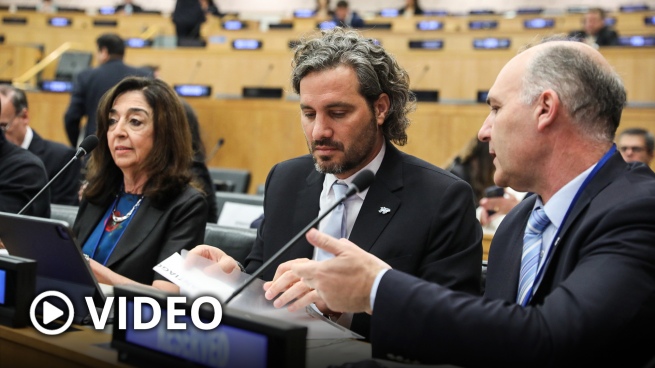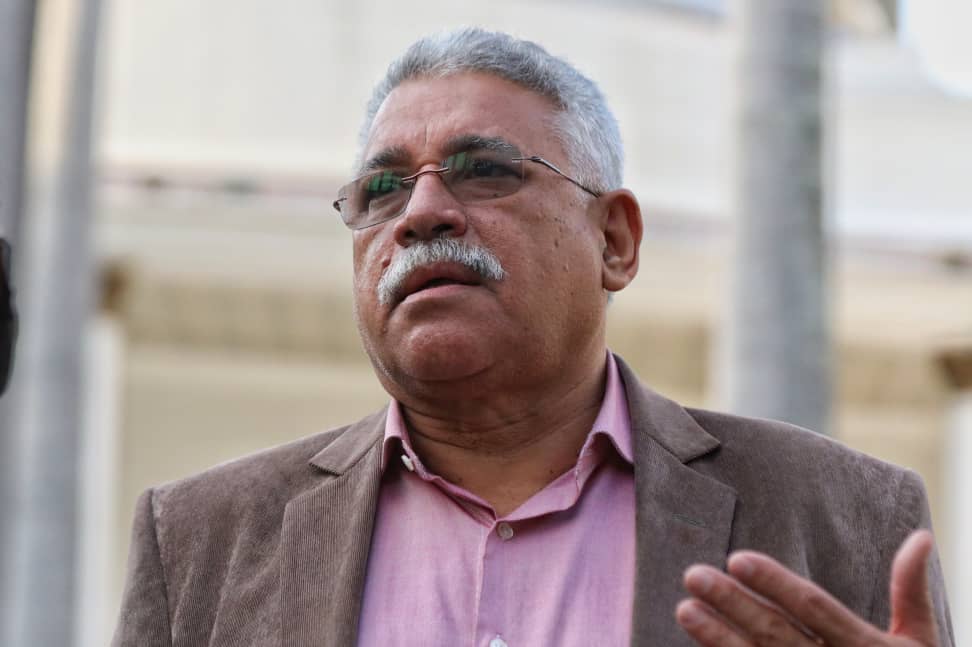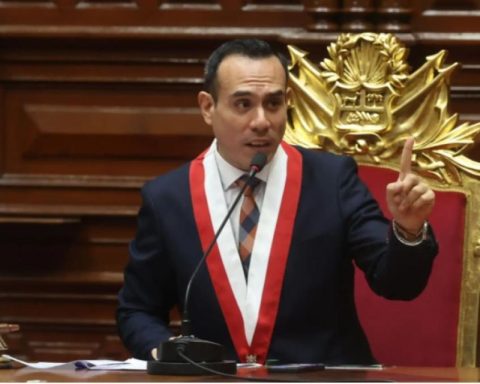Foreign Minister Santiago Cafiero requested at the UN that the United Kingdom “not be afraid of peace”
WATCH VIDEO
Foreign Minister Santiago Cafiero requested this Wednesday that the United Kingdom “not be afraid of peace” and assured that “it is time” for it to “leave its exercise of colonial power in the pages of history”, when presenting in the Special Session of the Decolonization Committee of the United Nations Organization (UN), in New York, 40 years after the armed conflict in the South Atlantic over the Malvinas Islands.
In his speech that began at 10:46 a.m. local time (11:46 a.m. in Argentina), Cafiero maintained that “it is time for the United Kingdom to listen to the international community and resume negotiations to reach a peaceful solution to the sovereignty dispute with the Argentine Republic, that it not be afraid of peace” and that it “lose the fear of dialogue within international law”.
He said that “today around the world there are still 17 colonial situations pending resolution, of which 10 involve the United Kingdom“, and “one of them is Malvinas”.
“Neither Argentina nor international law admit force, usurpation and privileges”santiago cafiero
In this framework, he considered that “it is time for the United Kingdom to leave its exercise of colonial power in the pages of history” and that it “act in accordance with the resolutions of the body of which it is a part, even as a permanent member of the Security Council.
“Neither Argentina nor international law admits force, usurpation and privileges,” the foreign minister insisted.
According to Cafiero, “the world cannot remain indifferent to the objective of altering stability in Latin America and the Caribbeanone of the most consolidated peace zones on the planet”, and referred that “it is time for the United Kingdom to listen to the international community and resume negotiations to reach a peaceful solution to the sovereignty dispute with the Argentine Republic, which not be afraid of peace, let him lose the fear of dialogue within international law”.
“The international community knows that it can count on Argentina for this task. We ask this Special Committee to once again express clearly and firmly its conviction that there is no more room for colonialism in the 21st century,” he added.
We celebrate the approval of the draft resolution of the United Nations Decolonization Committee so that the claim of sovereignty over the Malvinas Islands remains in force.
It is time for the UK not to be afraid of peace and get back on the path of dialogue.#MalvinasNosUne pic.twitter.com/HSmHjzJC9S
– Santiago Cafiero (@SantiagoCafiero) June 23, 2022
He also clarified that “Argentina is the country that insistently invites the United Kingdom to resume negotiations to end the sovereignty dispute” and that call “has been reflected not only in the resolutions of the General Assembly and of this Committee.”
“It also happened in numerous pronouncements by the Organization of American States, the Group of 77 and China, the Community of Latin American and Caribbean States, Mercosur, the Central American Integration System (SICA) and the Ibero-American Summit, among other regional forums. and international,” remarked the head of Argentine diplomacy.
The official said that Argentina is “the country that, with the aim of creating greater connectivity with the Malvinas Islands, has raised the possibility of reestablishing a regular flight from the continent, which continues to be rejected” by the United Kingdom.
Cafiero assured that “the United Kingdom guides its conduct in relation to the South Atlantic as if the sovereignty dispute no longer existed” and “continues to advance in unilateral acts and ignores General Assembly resolution 31/49 that urges the parties to refrain from carrying out unilateral actions in the disputed area until a definitive solution to the dispute is found”.
“The United Kingdom guides its conduct in relation to the South Atlantic as if the sovereignty dispute no longer existed”
And he exemplified that the British colonial government “unilaterally grants fishing licenses in the areas surrounding the Malvinas Islands and persists in the exploration and exploitation plans of non-renewable resources that do not belong to it.”
He warned that at the military level “The UK continues to behave as if the conflict took place yesterday” and “it maintains an unjustified and disproportionate military presence on the Islands, regularly carrying out maneuvers and exercises, which include firing missiles,” plus “the presence of ships capable of carrying and using nuclear weapons.”
The chancellor reaffirmed that “military victories do not grant rights” and recalled that the 1982 conflict “did not alter the nature of the sovereignty dispute between Argentina and the United Kingdom, which is still pending negotiation and solution today”, something that “not only Argentina says” but “was recognized by the General Assembly, and this was reflected in its resolution 37/9 in which it reiterated the validity of the resolutions it had adopted since 1965 and requested the parties to resume sovereignty negotiations”.
“Let us remember that in 1982, at the time of the hostilities in the South Atlantic, Argentina was being governed by an illegal and illegitimate military junta, which acted behind the back of the Argentine people and departed from Argentina’s traditional commitment to the principle of settlement. peace of international controversies,” he said.
Later he asked himself: “Is it that there are democracies that are worth more than others? Are there States authorized to breach the UN Charter and have we not read the fine print?” and he replied that “the international community must act or it will be complicit in the double standards of those who are promoters of the values of multilateralism in a foreign land.”
The foreign minister noted that “The arguments that support Argentina’s position are known, because we have been repeating them for 189 years.”
“We inherited the rights of Spain in 1810 and after that the Malvinas were present in the constant actions of the Argentine governments in the exercise of their sovereign rights, which was consolidated with the establishment of the political and military command in 1829,” stressed the chancellor.
“Already in 1816, our Liberator, General José de San Martín, also asked that those who inhabited the Falklands join the Army of the Andes, which would consolidate our independence and fight for the freedom of Chile and Peru,” he said.
Cafiero remarked that “unlike Argentina, the British position has been changing over time and contradicts its conduct in the past” and pointed out that “it went from rejecting the negotiations to accepting them in compliance with the provisions of resolution 2065 – of the General Assembly of 1965, to finally reject them again”.
“Is it that there are democracies that are worth more than others? Are there States authorized to breach the UN Charter and we did not read the fine print?”
“Starting in 1966 and for 16 years, both parties negotiated to reach a diplomatic solution to the dispute, as befits two responsible members of the international community committed to an international order based on international law, in compliance with the obligation enshrined in the Charter to resolve their disputes by peaceful means,” he continued in his speech.
In this sense, he stated that “however, once the bilateral negotiations on sovereignty were interrupted, the United Kingdom changed its position” and since then it has conditioned them “to the consent of the inhabitants of the Islands, ignoring what was established by the Assembly General and ignores that in this case there is no people subject to colonial subjugation, domination or exploitation”.
“On the contrary, the composition of the population of the Islands is the result of the colonization initiated by the United Kingdom in 1833, which tried by all means to preserve the ‘British character’ of that population”, he pointed out, and “consequently the The right to self-determination is not applicable to the question of the Malvinas Islands”, but “on the other hand, the territorial integrity of Argentina must be respected, which was broken with the British act of force of 1833, never consented to by the Argentine Government” .



















